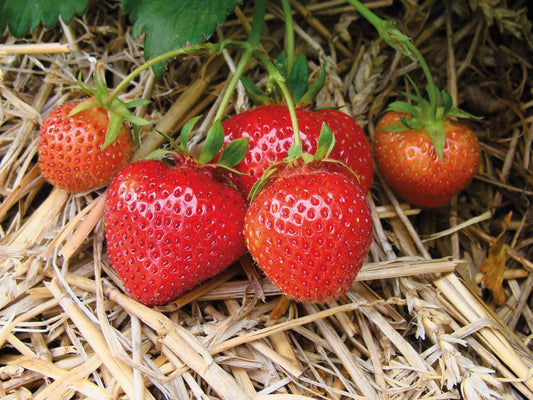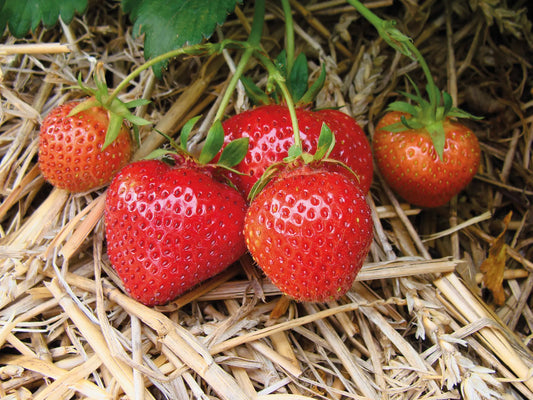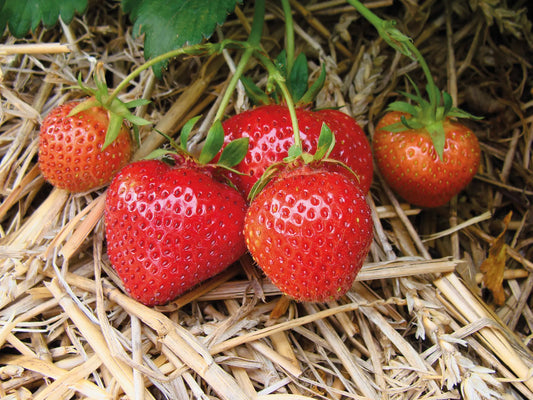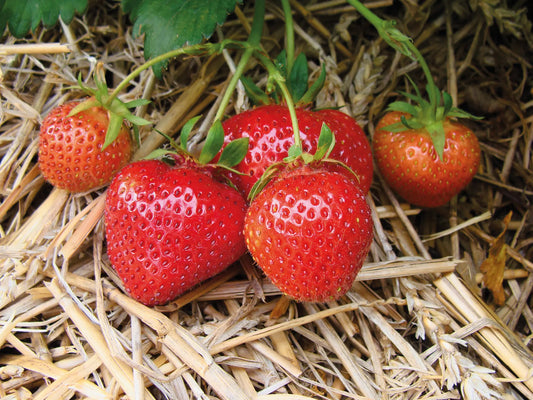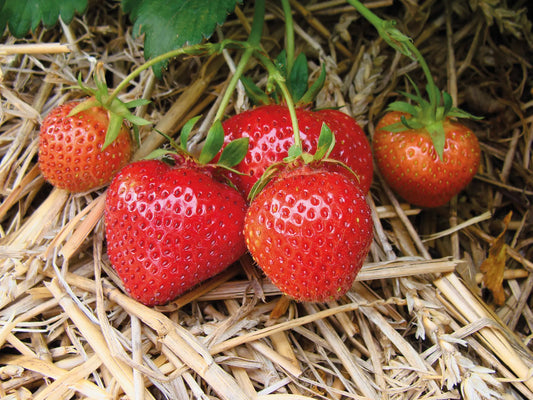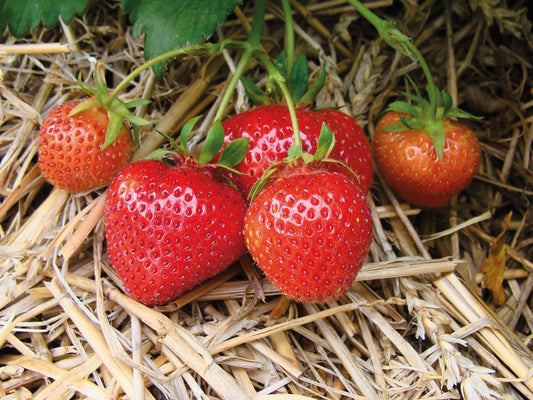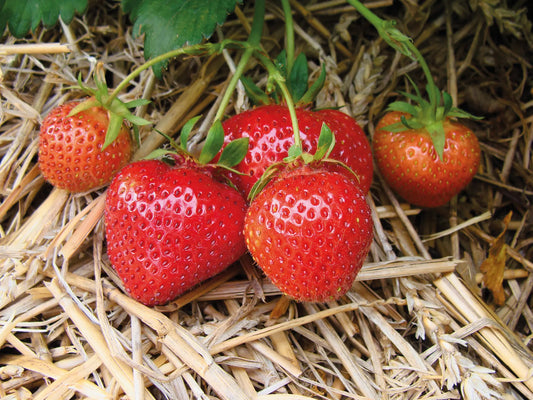Our Sonata Strawberry plants at producer prices
Buy now and get it delivered when you're ready to plant
-
Sonata Frigo A- Strawberry Plant
Regular price €0,16 EURRegular priceUnit price / per -
Sonata Fresh Bare-Root Strawberry Plant
Regular price €0,18 EURRegular priceUnit price / per -
Sonata Frigo A Strawberry Plant
Regular price €0,18 EURRegular priceUnit price / per -
Sonata Frigo A+ Strawberry Plant
Regular price €0,26 EURRegular priceUnit price / per -
Sonata Potted Strawberry Plant
Regular price €0,26 EURRegular priceUnit price / per -
Sonata Frigo A++ Strawberry Plant
Regular price €0,32 EURRegular priceUnit price / per -
Sonata Organic Potted Strawberry Plant
Regular price €0,33 EURRegular priceUnit price / per -
Sonata Waiting Bed Strawberry Plant 15-18 mm
Regular price €0,39 EURRegular priceUnit price / per -
Sonata Waiting Bed Strawberry Plant 18-22 mm
Regular price €0,44 EURRegular priceUnit price / per -
Sonata Waiting Bed Strawberry Plant 22 mm+
Regular price €0,47 EURRegular priceUnit price / per -
Sonata Tray Strawberry Plant
Regular price €0,64 EURRegular priceUnit price / per
Collapsible content
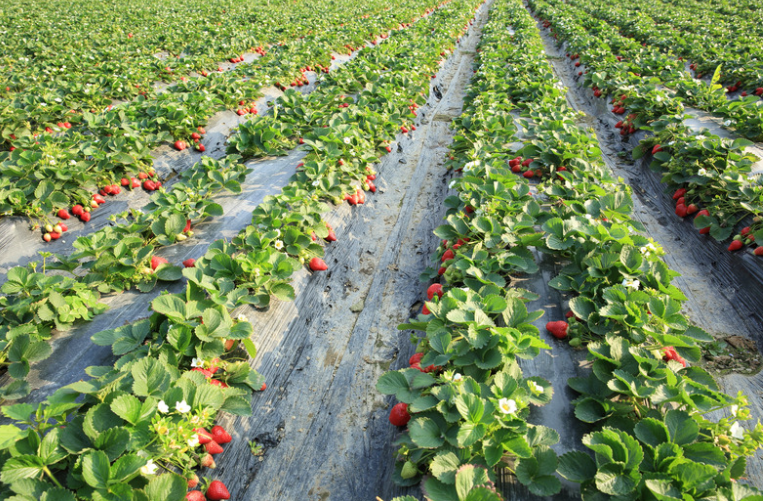
Strawberry Plant Buying Guide: What Type of Plants? For What Market Opportunity?
Which format should you choose: refrigerated, fresh, tray-plants, waiting bed, or plugs? Compare yields, costs, and harvest times at a glance.
Download the PDF guide (13 pages)
Why read this guide?
- Comparison tables: yield (300–600 g/plant), cost & labor.
- Reservation/delivery calendar for each format.
- Minimum order: 20 to 1,000 plants depending on the type.
- Full-field vs. above-ground case studies to maximize margin.
Overview of the 5 professional formats
Detailed comparison of formats
| Format | Yield (g/plant) |
Harvest time | Min. order | Average cost |
|---|---|---|---|---|
| Fridge | 250 – 400 | 120 days | 20 plants | 0.20 – 0.45 € |
| Costs | 280 – 420 | 140 days | 200 plants | 0.20 – 0.45 € |
| Tray plant | 400 – 600 | 90 days | 500 plants | 0.75 – 0.80 € |
| Waiting Bed | 300 – 500 | 105 days | 500 plants | 0.50 – 0.60 € |
| Motte | 230 – 350 | N+1 | 1,000 plants | 0.35 – 0.50 € |
Delivery schedule
| Plant type | Jan | Feb | Mar | Apr | May | Jul | Jul | Aug | Sep | Oct | Nov | Dec |
|---|---|---|---|---|---|---|---|---|---|---|---|---|
| Fridge | ||||||||||||
| Tray plants | ||||||||||||
| Waiting Bed | ||||||||||||
| Motte | ||||||||||||
| Costs |
Which format for which scenario?
Full field controlled budget
Fridge or Fresh : cost 2 x lower than tray plants, planting flexibility.
Above ground in greenhouse
Tray-plants : harvest 90 days after planting, uniform size, reduced labor.
Late planting
Mottes : planting July–August, rapid recovery, harvest the following year.
Ready to plan your plantings?
Download the complete guide Request a quoteFrequently Asked Questions
Is the guide free?
Yes, no fees or obligation to purchase.
How to download it?
Click the button “Download the guide” ; the PDF opens immediately.
Can I request a personalized quote?
Of course: write to us at contact@fraisiverse.com and an agronomist will respond to you within 24 hours.
Choosing the right strawberry varieties for your plot
Extend your harvest season by up to 5.5 months with our "early + season + everbearing" method. Compare 78 cultivars, sizes, and markets.
Download the PDF guide (17 pages)
4 axes to decide quickly
- Harvest Window : Early, Seasonal, or Everbearing? Combine them for 5.5 months .
- Commercial outlet : direct sales, long circuit, processing or freezing.
- Type of plants : fridge, fresh, root ball, tray plants… adapt your investments and your schedule.
- Growing conditions : open field, soilless, greenhouse; target consistent yield and size.
Axis 1: Select your harvest window
Example of recommended mix:
- Ciflorette (early) → Rubis des Jardins (season) → Charlotte (remontant).
- 5.5 months of continuous production, ideal for direct sales.
Axis 2: Sell at the right market
Direct sales
Ciflorette, Charlotte, Mara des Bois: premium taste sought after by consumers.
Long circuit / GMS
Magnum, Clery, Dream: uniform size, 95% class 1 fruit.
Transformation
Darselect, Mara des Bois – high sugar content and stable aroma.
Freezing
Honeoye, Belrubi – firm flesh, keeps well in the cold.
Axis 3: Choose the right type of plants
| Kind | Reservation | Delivery | Highlights |
|---|---|---|---|
| Fridge | All year round | Dec. → Aug. | Flexibility & price |
| Tray plants | Feb. → June | Nov. → Apr. | Above ground, harvest 90 days after planting |
| Motte | Sep. → May | Jul. → Sep. | Ideal for open fields, harvest N+1 |
| Costs | Feb. → Aug. | Sep. → Nov. | Young plants, rapid recovery |
Axis 4: Optimize your technical constraints
Tray plants guarantee +25% yield and simplified harvesting above ground; ideal for mechanizing your production and ensuring consistent size.
Frequently Asked Questions
Is the guide really free?
Yes, with no cost or obligation to purchase.
How to download it?
Just click the button “Download the guide” at the top of the page; the PDF opens immediately.
Can I request a personalized quote?
Of course: contact us via our contact page .
When to plant? When to harvest?
Do you want to start a strawberry farm but don't know when to reserve your plants, when to plant them or even harvest them?
Because we love 🍓 (with just a little sugar), we're going to do the work for you. On this page, you'll find the growing steps for each type of strawberry plant. When to order? What is the delivery period? When to plant? And finally, when to harvest?
Production Calendar - Frigo Strawberry Plants
| Production Calendar - Frigo Strawberry Plants | ||||||||||||||||||||||||
|---|---|---|---|---|---|---|---|---|---|---|---|---|---|---|---|---|---|---|---|---|---|---|---|---|
| Jan | Feb | Mar | Apr | May | Jun | Jul | Aug | Sep | Oct | Nov | Dec | |||||||||||||
| Reservation | ||||||||||||||||||||||||
| Deliverable | ||||||||||||||||||||||||
| Recommended planting | ||||||||||||||||||||||||
| Harvest | ||||||||||||||||||||||||
Production Calendar - Fresh Bare-Root Strawberry Plants
| Production Calendar - Bare Root Strawberry Plants | ||||||||||||||||||||||||
|---|---|---|---|---|---|---|---|---|---|---|---|---|---|---|---|---|---|---|---|---|---|---|---|---|
| Jan | Feb | Mar | Apr | May | Jun | Jul | Aug | Sep | Oct | Nov | Dec | |||||||||||||
| Reservation | ||||||||||||||||||||||||
| Deliverable | ||||||||||||||||||||||||
| Recommended planting | ||||||||||||||||||||||||
| Harvest | ||||||||||||||||||||||||
Production Calendar - Strawberry Plants Plugs
| Production Calendar - Strawberry Plants Motte | ||||||||||||||||||||||||
|---|---|---|---|---|---|---|---|---|---|---|---|---|---|---|---|---|---|---|---|---|---|---|---|---|
| Jan | Feb | Mar | Apr | May | Jun | Jul | Aug | Sep | Oct | Nov | Dec | |||||||||||||
| Reservation | ||||||||||||||||||||||||
| Deliverable | ||||||||||||||||||||||||
| Recommended planting | ||||||||||||||||||||||||
| Harvest | ||||||||||||||||||||||||
Production Calendar - Strawberry Plant Tray
| Production Calendar - Strawberry Plants Motte | ||||||||||||||||||||||||
|---|---|---|---|---|---|---|---|---|---|---|---|---|---|---|---|---|---|---|---|---|---|---|---|---|
| Jan | Feb | Mar | Apr | May | Jun | Jul | Aug | Sep | Oct | Nov | Dec | |||||||||||||
| Reservation | ||||||||||||||||||||||||
| Deliverable | ||||||||||||||||||||||||
| Recommended planting | ||||||||||||||||||||||||
| Harvest | ||||||||||||||||||||||||
Our Growing Guides by Plant Type / Our Growing Tips
Our online advisor: Fraisibot
Our technical itineraries by type of strawberry plant:
Technical Itinerary for Growing Strawberries from Frigo Plants
Technical Itinerary for Growing Strawberries from Plug/Pod Plants
Technical Instructions for Growing Strawberries from Tray or Mini Tray Plants
Technical Guide for Growing Strawberries from Bare-Root Fresh Strawberry Plants
Technical Instructions for Growing Strawberries from Waiting Bed Plants
All our growing tips for planting strawberries:
Strawberry Plants: Soil Preparation and Planting
Soil preparation for strawberry growing, planting techniques, and optimizing strawberry yield.
Best Practices for Irrigation and Fertilization of Strawberry Plants
Efficient irrigation systems, frequency and quantity of watering, types of fertilizers and application times, signs of nutritional deficiencies, growing strawberries in substrate, protection against frost and diseases.
Protection and Prevention of Strawberry Diseases and Pests
The main diseases and pests affecting strawberries, as well as effective methods for their prevention and treatment, including biological control and the use of resistant varieties. It provides practical advice for maintaining healthy and productive strawberry crops.
Succeeding in Strawberry Farming: Costs, Business Strategy and Subsidies
Growing strawberries requires significant initial and ongoing costs, but with effective marketing strategies and sustainable practices, growers can maximize their profits while contributing positively to the environment. Grants and financial aid are available to support necessary investments and encourage environmentally friendly farming practices.
Maximizing Strawberry Harvest and Storage: A Practical Guide
How to determine the optimal time to harvest strawberries, best practices for minimizing fruit damage during picking, and effective methods for storing and managing unsold strawberries to avoid losses and maximize profitability. It offers practical tips for extending the shelf life of strawberries, including refrigeration, freezing, and dehydration.
Strawberry Growing: Why Stagger Production? Early, Seasonal, Late? How to Choose?
Staggering strawberry production allows for harvests to be spread throughout the season, ensuring optimal fruit quality and increased profitability. Learn about recommended varieties for early, mid-season, and late-season production, as well as best practices for harvesting and storage.
-
Delivery from 10 plants to France, Switzerland and Europe
Delivery methodWe deliver anywhere in France as quickly as possible. Cost/quality balance is our priority.
-
Strawberry Plant Wholesale Supplier
About UsWe work with dozens of producers to offer you the best prices.
-
Quality Strawberry Plants
Strawberry Technical ItinerariesOur producers are selected for their reliability and the quality of their products.
-
Collection: Our Sonata Strawberry plants at producer prices
Technical sheet of the Sonata strawberry variety
- Remontant: Non-Remontant
- Earliness: Mid-Late Season
- Harvest period: June to mid-July
- Fruit shape, texture, appearance: Firm fruit, few deformed fruits
- Fruit color: Bright red and light red inside
- Taste characteristics: Excellent sweet taste, clear aroma
- Fruit Size: Excellent sweet taste, clear aroma
- Disease resistance: Suitable for colder climates (such as the northern Alps). Rain resistant, does not crack easily.
- Yield, management and marketing: Easy to pick. Abundant fruit. Large yield. High rate of first-quality fruit.
- Recommended commercial use / marketing channel: Direct sales, Wholesale, Processing
Order your professional strawberry plants
Fraisiverse, a specialist wholesale supplier of strawberry plants, offers you the Sonata variety, acclaimed by producers for its consistent quality and profitability. Buying your strawberry plants allows you to benefit from numerous advantages: competitive producer prices , professional quality from specialized nurseries , fast and careful delivery throughout France , and varietal resistance guaranteeing high yields . Our team supports you with personalized advice and dedicated technical support to optimize your plantations. Thanks to a responsive sales department , you can plan your supplies with complete peace of mind. Order now or reserve your Sonata strawberry plants, and take advantage of our producer prices . Don't wait to secure your volumes: request a free quote and ensure the success of your next harvests with a variety adapted to professional conditions.
Varietal characteristics and phenology of the Sonata strawberry
The Sonata strawberry is a non-remontant variety, belonging to the "short day" type , which means that it produces only one flowering and a single annual harvest period, concentrated over a short period. Its earliness is classified from mid-season to mid-late, or even "medium late" according to professional references. It adapts particularly well to cool and humid climates , such as those north of the Alps for example.
Fruit morphology and organoleptic properties
Its fruits are a bright, uniform red on the outside , taking on an orange-red color at optimal harvest which evolves into a bright red after picking. Inside, the flesh is a light, uniform red, and does not have marked white areas , an asset for the visual presentation. Conical and regular in shape, the fruits of the Sonata strawberry plant are characterized by their medium to large size, generally exceeding that of the Elsanta variety . An average weight of 20 to 22 grams per fruit is frequently observed, with the possibility of reaching 25 to 30 grams in optimal conditions or with "Frigo A+" type plants. The texture of the Sonata strawberry is firm and juicy , offering a pleasant crunch in the mouth and excellent hold. Its firmness is estimated between 1.2 and 1.8 kg/cm² , classifying it among the fruits with medium to high firmness. In terms of taste, it is distinguished by a very sweet taste and a clear and pronounced aroma , very appreciated when tasting. The plant is also characterized by a beautiful green crown that retains its attractiveness even after harvesting.
Professional cultural itinerary: planting, management and maintenance
For optimal use of the Sonata strawberry plant, the main flowering period generally extends from late April to late May , depending on the region and climatic conditions, preceding the harvest by approximately four to six weeks. This flowering is concentrated, which results in a massive harvest over a short period.
A planting density of approximately 35,000 plants per hectare is recommended for the Sonata variety to optimize yield under professional conditions. It is essential to favor full sun to partial shade exposure and well-drained, fertile, and slightly acidic soil . Careful management of irrigation, fertilization, and plant protection is crucial to fully exploit the potential of the variety, thus ensuring consistent yields and fruit quality.
Expected yield and harvest window
The Sonata strawberry is recognized as one of the most productive non-remontant varieties, with a yield of up to 17.5 tons per hectare under good growing conditions. Technical trials have even reported yields of 2.4 kg per square meter, which is equivalent to 24 tons per hectare . At the plant level, yields can vary between 1 and 1.5 kg per plant under ideal conditions, although more common estimates are between 250 and 400 grams per plant depending on planting density.
The primary harvest window for Sonata strawberries is mid- to mid-late season , with production typically beginning in late June and extending through mid-July, depending on regional weather conditions. Approximately 70% of production is concentrated in a two- to three-week period , typically between week 26 and 28 of the calendar year (late June to mid-July). This concentration of volumes in a tight period is advantageous for logistics planning and labor.
Health management: pathologies and biological resistance
In terms of health management, the Sonata strawberry demonstrates good tolerance to cold and rain , thus reducing the risk of split or deformed fruit. It is also considered to be relatively unsusceptible to common diseases such as downy mildew and powdery mildew , and has good tolerance to verticillium wilt . However, special vigilance is required against Phytophthora cactorum , a root disease to which the Sonata strawberry can be susceptible. These resistances contribute to the general robustness of the variety and the reduction of phytosanitary interventions.
Profitability and supply logistics
The Sonata variety is primarily intended for fresh consumption , where it is particularly appreciated for its excellent sweet taste, aroma and firm texture, as well as for the regularity of the shape of its fruits. These qualities make it ideal for direct sales, markets and large-scale distribution. The high percentage of top-quality fruit is a major asset for profitability, facilitating marketing.
Thanks to its firmness and good resistance to rain, the Sonata is also suitable for food processing , particularly for jam, pastries and freezing, although fresh consumption remains its commercial priority. Its versatility allows it to be valued across all distribution channels. Logistics are optimized by excellent preservation of the fruit after harvest , and by the ease of picking due to the consistency of the fruit and the robustness of the plant.
Comparison with reference varieties
The Sonata strawberry plant is often compared to other major varieties on the market, such as Elsanta and Darselect. Compared to Elsanta, Sonata is generally mid-season to mid-late (slightly less early), has a sweeter and more aromatic taste, and is larger in size . It is also better suited to cool, humid climates and less susceptible to powdery mildew than Elsanta. As for Darselect, although it offers a very large size and a powerful aroma, it is more susceptible to fungal diseases, which can make growing it more demanding. More recently, the Sonsation variety, derived from Sonata, has distinguished itself by its higher yield and even juicier fruit . Choosing "Frigo A+" category plants for Sonata can also positively influence fruit size , allowing for even larger sizes.
To summarize: Our Sonata strawberry plants
The Sonata variety is an essential reference for strawberry growers looking for productivity and taste quality. As a specialist wholesale supplier of strawberry plants , Fraisiverse rigorously selects robust plants, suitable for professional exploitation. The Sonata variety, of the "short day" type, is distinguished by concentrated flowering and a massive harvest, allowing simplified logistics and optimized planning. Its conical, firm and juicy fruits, with a pronounced sweet and aromatic taste, appeal to both large-scale distribution and direct sales. Buying Sonata strawberry plants is the guarantee of harvesting a larger size than varieties like Elsanta, with an average weight of 20 to 22 g and excellent homogeneity. Fraisiverse supports your plantations with tailored technical advice, fast delivery and decreasing prices according to your volumes. In addition, Sonata has good tolerance to verticillium wilt, powdery mildew and downy mildew, thus reducing the need for phytosanitary treatments. Thanks to its firmness and optimal preservation, it meets both the requirements of the fresh market and the needs of processing. Buying Sonata strawberry plants also means investing in a variety offering up to 17.5 tons per hectare, with peaks reaching 24 tons in the best conditions. The plants supplied by Fraisiverse guarantee regular production and high profitability for your farms. As a specialist wholesale supplier of strawberry plants, we offer you certified batches from specialized nurseries to ensure the sustainability and productivity of your crops. Buying Sonata strawberry plants from Fraisiverse means choosing a reliable partner who places your grower needs at the center of its commitments. With our positioning as a specialist wholesale supplier of strawberry plants, we offer you unique expertise, a responsive sales service, and plants adapted to the expectations of the French and European markets.
Fraisiverse - Your supplier of quality strawberry plants. Organic or conventional. Delivery throughout France. Wide range of strawberry plants: Tray Strawberry Plants, Motte Strawberry Plants, Frigo Strawberry Plants, Waiting Bed Strawberry Plants. Strawberry plants for professional and private strawberry growers

